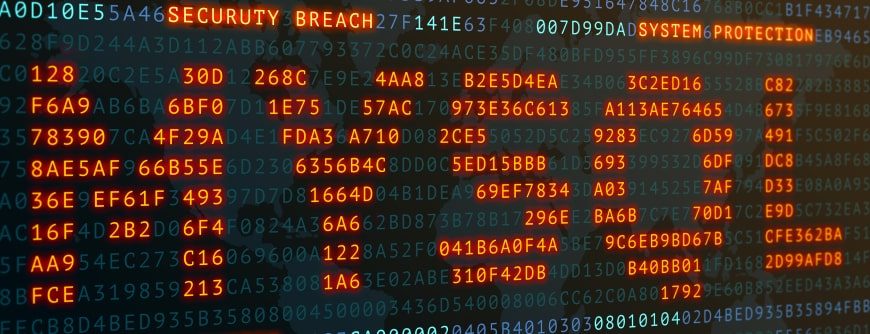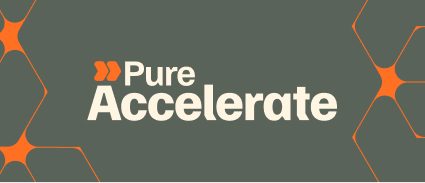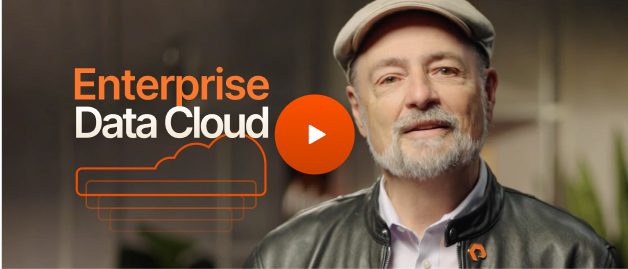Dismiss
Innovation
A platform built for AI
Unified, automated, and ready to turn data into intelligence.
Dismiss
June 16-18, Las Vegas
Pure//Accelerate® 2026
Discover how to unlock the true value of your data.
Dismiss
NVIDIA GTC San Jose 2026
Experience the Everpure difference at GTC
March 16-19 | Booth #935
San Jose McEnery Convention Center
What Is MariaDB?

MariaDB is a free, open source relational database management system (RDBMS). It was created by the original developers of MySQL amid concerns MySQL would be commercialized after Oracle acquired it in 2009.
MariaDB is written in C and C++ and supports multiple programming languages, including C, C#, Java, Python, PHP, and Perl. MariaDB also supports all the major operating systems, including Windows, Linux, and macOS.
Although it’s a relational database, MariaDB offers NoSQL-like features in version 10. The Connect engine allows for easy access to unstructured data from within MariaDB, while dynamic columns allow NoSQL-type storage of different types of objects in the same row.
What Is MariaDB Used For?
MariaDB offers the same features as MySQL and can be used as a direct replacement for the MySQL database server (i.e., MySQL can be uninstalled and MariaDB installed with no other changes). Designed for speed, reliability, and ease of use, MariaDB can be used for both small and enterprise processing tasks.
Why Is It Called MariaDB?
MariaDB gets its name from one of the daughters of co-founder Michael “Monty” Widenius. MySQL, a name now trademarked by Oracle, is named after his daughter My. Following the same tradition, MariaDB is named after his younger daughter, Maria. The name MariaDB was originally used for a storage engine, which was renamed Aria.
What Kind of Database Is MariaDB?
MariaDB is an open source, relational database management system. An RDBMS is a common type of database that manages predefined relationships between data, in which data is organized as a set of tables, columns, and rows.
The columns in the table store data attributes, and each row is a record with values for each attribute. A unique ID or primary key makes it possible to create relationships between the data. The relational database model is widely used in organisations of all sizes.
When Should You Use MariaDB?
Transaction Processing
MariaDB is well suited for enterprise transactional applications that require support for frequent queries, fast response times, and the ability to process small amounts of data. Its InnoDB storage engine supports ACID-compliant transactions and ensures that each transaction is treated as a single unit.
Web Applications
MariaDB works well with web applications and e-commerce platforms, and its multi-threading mechanisms allow it to handle higher loads than other database systems. Because of its multi-threaded model and high performance, MariaDB can scale out to allow your application or site to handle traffic spikes or rapid business growth.
Three MariaDB Query Examples
MariaDB queries are similar to MySQL and look like standard SQL queries. Here are three examples of MariaDB queries:
Retrieving customer information from a table:
SELECT firstname, lastname, address, city, state, zip FROM customer;
Inserting rows:
INSERT INTO customer (firstname, lastname, address, city)
VALUES ('Andrew', 'Williams', ‘75 Rose View’, 'Miami', ‘FL’, 33126);
Updating customer information:
UPDATE customer SET address = “175 Ocean City” WHERE lastname = ‘Williams’;
What Data Types Can MariaDB Handle?
MariaDB supports several SQL data types, including numeric, string, date, and time.
- Numeric data types: Tinyint, Boolean, smallint, mediumint, int, zerofill, bigint, decimal, float, double, and bit
- Date and time data types: Date, time, datetime, timestamp, and year
- String data types: String literals, char, varchar, binary, varbinary, tinyblob, blob, mediumblob, longblob, longtext, tinytext, text, mediumtext, enum, and set
- Other data types: Geometry, auto_increment, data type storage requirements, auto_increment_faq, and nulls
Does MariaDB Have a Native Client?
MariaDB comes with a native MySQL command-line client that supports interactive and non-interactive use. When used interactively, query results are displayed in an ASCII table format, and when used non-interactively (i.e., as a filter), results are presented in a tab-separated format. The output format can be changed using command options.
How Do You Download MariaDB?
You can download the current stable version of MariaDB from the MariaDB website. If you’re looking for additional MariaDB products and tools for development and production, you can find them on the MariaDB Products & Tools page.
The source code for MariaDB can be downloaded from GitHub.
How Much Does MariaDB Cost?
MariaDB Community Server is released under the GNU Public Licence v2 and is guaranteed to be free and open source forever. MariaDB Community Server features SQL on JSON support, compatibility with Oracle and MySQL, support for multiple storage engines, and real-time analytics.
MariaDB is also available in enterprise and cloud versions. MariaDB Enterprise includes MariaDB MaxScale, application and integration connectors, management tools, and technical support. You can purchase MariaDB Enterprise by requesting a customized quote.
SkySQL, the cloud version of MariaDB, provides the high availability, scalability, and security that comes with a cloud environment. It features support for multiple workloads, disaster recovery, and proactive monitoring. MariaDB SkySQL comes with a $500 credit and starts at $0.1702 per hour.
Four MariaDB Questions Answered
Who Created MariaDB?
MariaDB was created by Michael “Monty” Widenius, the founder of MySQL AB (now MariaDB Corporation) and a founding member of the MariaDB Foundation. Some of the original developers of MySQL were also involved in the development of MariaDB. MySQL AB, founded in 1995, was bought by Sun Microsystems in 2008. Sun was acquired by Oracle in 2010.
Is MariaDB Backward Compatible with MySQL?
MariaDB was kept up to date with the equivalent version of MySQL until version 5.5 and functioned as a “drop-in replacement” with minor limitations. MariaDB’s data files and client protocol are generally binary compatible with the MySQL equivalents.
Upgrading from MySQL to MariaDB is still a straightforward process. Most times, you can simply uninstall MySQL and install MariaDB without having to convert data files. MariaDB, however, has several new options, extensions, storage engines, and bug fixes that aren’t found in MySQL.
Why Should I Use MariaDB Instead of MySQL?
While MariaDB retains many of the features of MySQL, it has several powerful built-in features and performance improvements over MySQL, including:
- Licencing model: Both MariaDB and MySQL are available as open source databases with community editions under GPLv2. While MariaDB offers a full-featured package with its community edition, MySQL only offers some features like thread pooling in its Enterprise edition.
- Performance: MariaDB offers improved performance over MySQL when querying views and handling flash storage. MySQL queries all tables connected to the view. MariaDB optimises the process by only querying the tables required by the query. MariaDB also provides the MyRocks storage engine and RocksDB which are designed for better performance with flash storage.
- Multi-threaded: MariaDB’s thread pooling feature can handle up to 200,000 simultaneous connections. This feature is only available in the MySQL Enterprise edition.
- More storage engines: MariaDB ships with more storage engines and plug-ins than MySQL, including Aria, Connect, Spider for sharding, and TokuDB for handling big data.
Which Is Better: MariaDB or MySQL?
Both MariaDB and MySQL are powerful, and both offer advantages to organisations. As a result, the best one for you is the one that meets your business needs. MySQL has been around for a long time and comes with more resources and the support of a large organisation behind it. This can result in faster bug fixes and releases of new features.
MariaDB, on the other hand, depends on community support but brings faster performance and more storage engines, which allow you to store different types of data. MariaDB is similar enough to MySQL to be used as a direct replacement, allowing you to benefit from its additional features.
Build an Advanced Data Solution for Open Source Workloads
MariaDB is an open source and forever-free MySQL alternative that offers greater efficiency, enhanced database performance, and support for various data types through multiple storage engines.
Everpure offers several solutions for your open source database workloads.
Keep data storage simple, seamless, and sustainable with the speed and performance of FlashBlade® all-flash storage arrays and Purity storage management software.
We Also Recommend...
Browse key resources and events

TRADESHOW
Pure//Accelerate® 2026
June 16-18, 2026 | Resorts World Las Vegas
Get ready for the most valuable event you’ll attend this year.
PURE360 DEMOS
Explore, learn, and experience Everpure.
Access on-demand videos and demos to see what Everpure can do.

VIDEO
Watch: The value of an Enterprise Data Cloud
Charlie Giancarlo on why managing data—not storage—is the future. Discover how a unified approach transforms enterprise IT operations.
RESOURCE
Legacy storage can’t power the future
Modern workloads demand AI-ready speed, security, and scale. Is your stack ready?
Personalize for Me